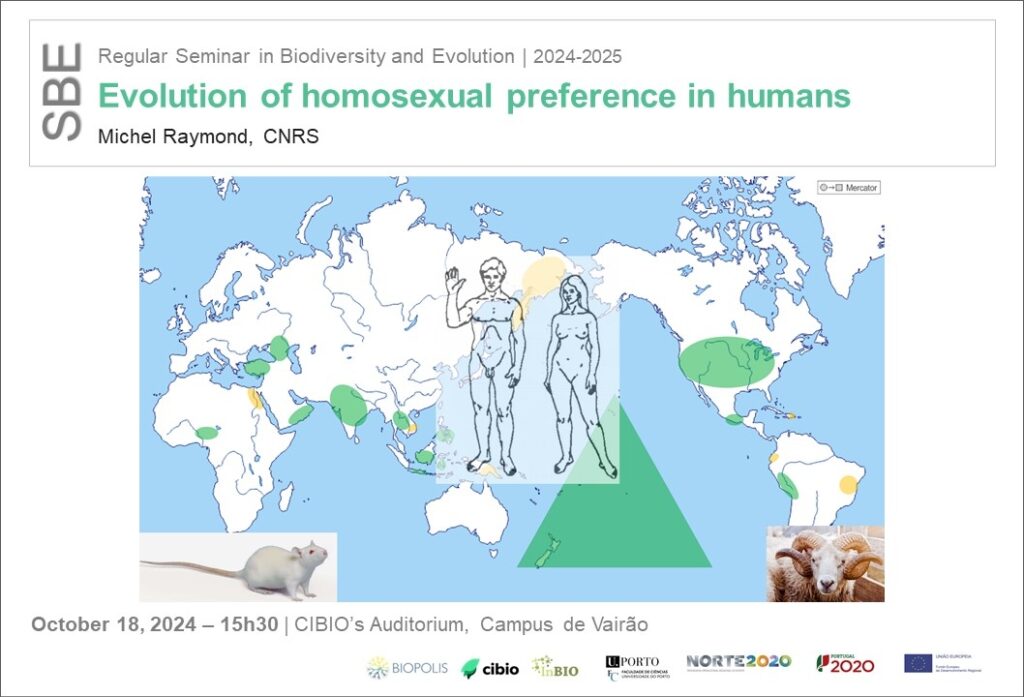Evolution of homosexual preference in humans
Michel Raymond, CNRS
October 18, 2024 | 15h30 | Auditorium, Campus de Vairão

Male homosexual orientation remains a Darwinian paradox (a heritable trait with a high direct reproductive cost) because there is no consensus on its evolutionary (ultimate) determinants. Much work in recent decades has focused on kin selection, with the conclusion that this explanation alone seems insufficient and cannot explain the origin or maintenance of same-sex sexual preference in our species. Several other evolutionary explanations, such as pleiotropic effects, are now being investigated, although there is still no consensus on the nature of the advantageous trait that would be selectively favoured and associated with same-sex attraction. An intriguing feature of homosexual men is their higher male birth order compared to heterosexual men, which is best explained by a fraternal birth order effect rather than a pleiotropic effect on female fertility. However, the effect of male birth order on sexual orientation requires an evolutionary explanation. An overall picture of possible evolutionary determinants of same-sex orientation is presented, together with new field data from a third gender society.
More information here